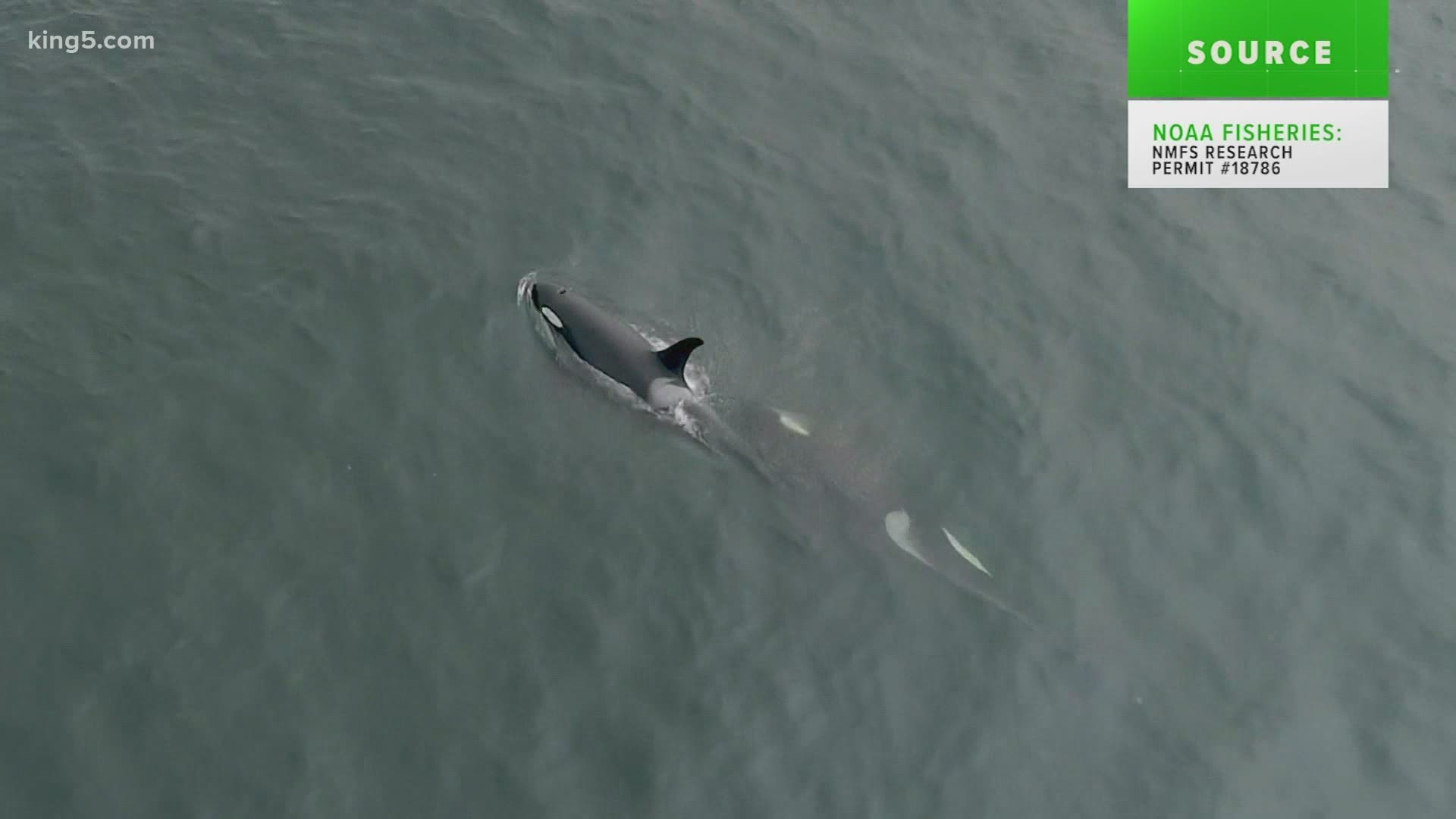SEATTLE — Thanks to the two baby orcas born in September, there are now 74 whales in the J, K, and L pods in Puget Sound.
But, according to the Center for Whale Research on San Juan Island, that’s still 23 fewer whales than their recent peak in the mid-90s, and orcas are very much still an endangered species.
One reason the Southern Resident killer whales struggle to survive is a lack of food supply.
Chinook salmon make up at least 80% of their diet, but they’re a protected species as well.
According to the National Oceanic and Atmospheric Administration (NOAA) the amount of Chinook salmon in local waters has drastically declined over the last 35 years.
But there are other kinds of salmon. Why not just take the Chinook salmon we do have and drop some of them in front of the starving orcas?
Lynne Barre, NOAA’s recovery coordinator for the southern resident killer whales, told KING 5, “There's a real risk to the animals to putting food in the water in front of them, to associating people with food to making them less wary of people and boats. It also increases the risk for them. And it's something that can pass through a social population like killer whales, where individuals lose that weariness and can be at higher risk for things like boat strikes, or they could become dependent on human-provided food.”
Barre says another big problem for the orcas is their own popularity. When whale watchers or any boats come too close, they directly impact one of the orcas’ most important characteristics.
“They're very acoustic animals,” Barre said. “So vessels and sound can interfere with their communication and echolocation the sonar they use to find their food.”
Barre says, unfortunately, there is no or simple quick fix. Saving the orcas will be a decades-long, multi-faceted approach that restores salmon runs, controls boat traffic and more.
So we van VERIFY that no, humans cannot simply dump fish in the sea and expect the orcas to survive.

